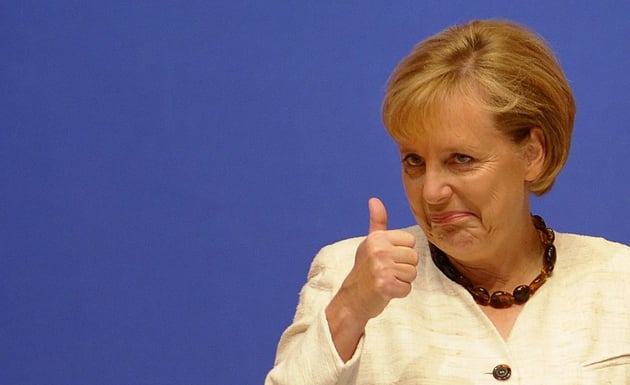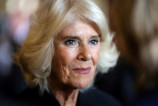
Here's a look at some of the issues that promise to test Merkel's diplomatic finesse:
French President Emmanuel Macron will be the first to pile on the pressure with a major speech on European reforms timed to take place on Tuesday, just two days after the German election.
Merkel has cautiously signalled her support but is bracing for pushback within her conservative camp over some parts of Macron's vision, such as the creation of a 'multispeed' European Union or a single eurozone budget.
Merkel has no regrets over refugee policy despite political cost
While the leaders of the EU's twin engine have been all smiles in public, officials say annoyance is mounting behind the scenes. "Macron behaves as though he were the Sun King, touched by divine grace to govern, that doesn't go over very well with the Germans," a German official said on condition of anonymity.
The reforms debate risks becoming more complicated after the pro-EU Social Democrats refused to form a new coalition with Merkel.
That leaves her seeking an alliance with the liberal Free Democrats [FDP] who fiercely oppose Macron's ideas. FDP chief Christian Lindner said on Sunday that a eurozone "budget in which money is flowing to France for state consumption there... would be unimaginable and a red line for us."
Merkel has taken a hard line on Russia's President Vladimir Putin over the conflict in east Ukraine. But she can expect growing calls to warm up their frosty relations as a large number of pro-Russia lawmakers take their seats in parliament.
Of the seven parties in the Bundestag, only Merkel's CDU and the Greens are advocating staying the course. The Social Democrats have openly called for "a detente" with Moscow, while the FDP has said the annexation of Crimea should be accepted as a fait accompli and called for sanctions to be eased.
Despite the US and Germany being close allies, there's little love lost between President Donald Trump and Merkel. They look set to remain at odds on key issues from climate change to free trade and the Iranian nuclear deal. "With these two, a relationship reset will prove difficult," said Germany's Bild newspaper.
Their differences were on stark display again over North Korea, where Merkel has ruled out any military solution. "There is a clear disagreement on this point with the American president," she said last week.
Merkel will also be steeling herself for a domestic battle over Trump's insistence that Germany live up to its NATO commitments and increase military spending to two percent of gross domestic product.
Merkel support slides six weeks before election, SPD rival even weaker
Merkel would encounter little resistance from the FDP to the move, but the Social Democrats fiercely oppose a spike in defence spending.
Germany has locked horns with several eastern European countries - Hungary in particular - over their refusal to take in their allocated share of the asylum seekers that overwhelmed the bloc in 2015, and the spat is showing no signs of abating.
"Those who refuse this solidarity have to know that this will not stay without consequences, including when we negotiate about future [EU] financial support," Merkel warned.
A row has also been brewing with Warsaw's right-wing government over its insistence that Germany still owes Poland reparations from World War II.
Germany's ties with NATO ally Turkey meanwhile have hit rock bottom following a string of spats sparked by Berlin's criticism of Ankara's post-coup crackdown.
Tensions reached fever pitch after Turkish President Recep Tayyip Erdogan urged German Turks to vote against Merkel's conservatives.
But with the election out of the way, there could be scope for tensions to ease.
1731494851-0/BeFunky-collage-(51)1731494851-0-405x300.webp)




1731495427-0/Copy-of-Untitled-(37)1731495427-0-270x192.webp)
1731484086-0/Copy-of-Untitled-(33)1731484086-0-270x192.webp)










COMMENTS
Comments are moderated and generally will be posted if they are on-topic and not abusive.
For more information, please see our Comments FAQ